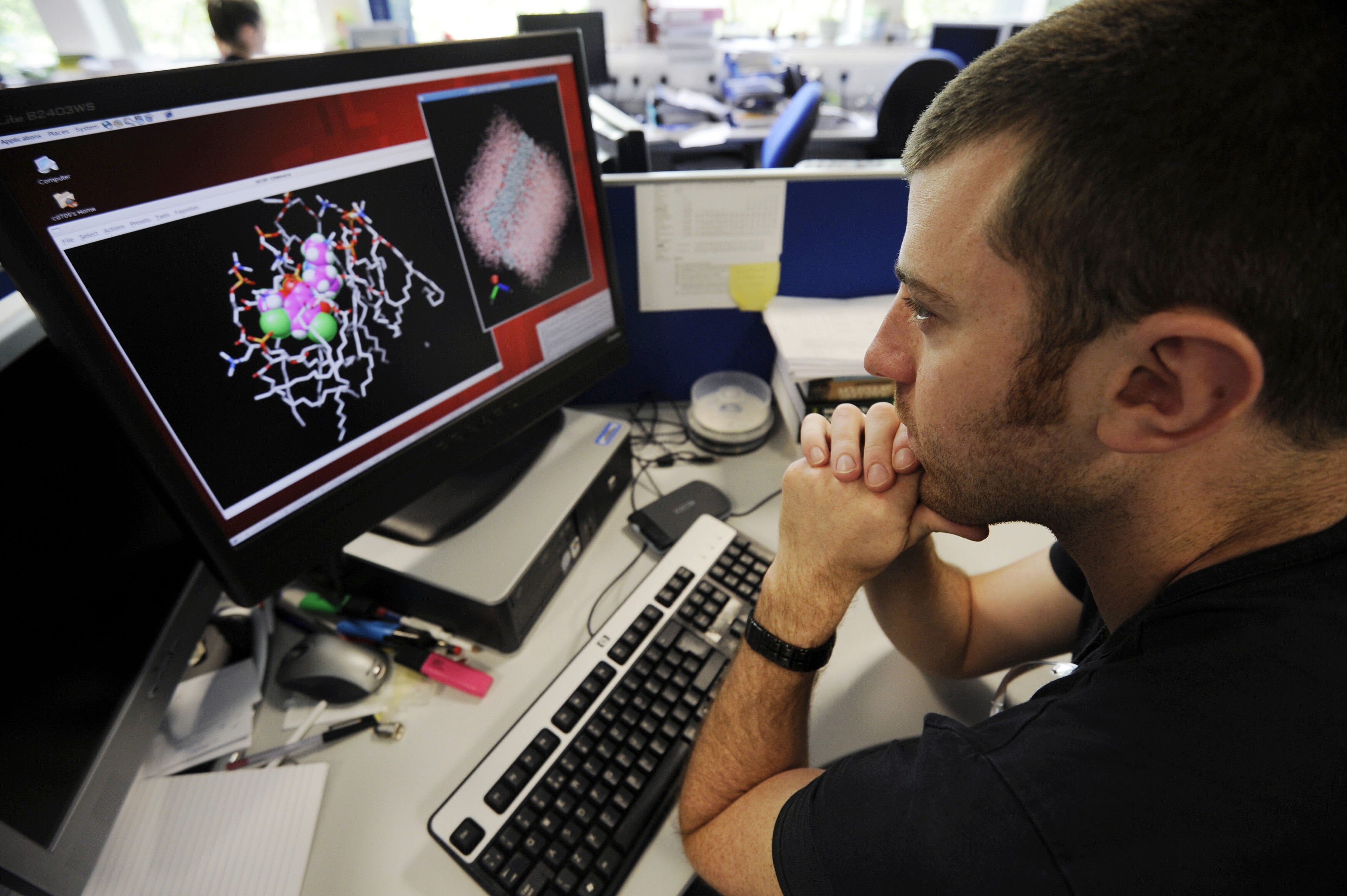9 positive changes expected in 2021, from equality to the environment

New global trends in 2021 are expected to shape people's lives for the better. Image: Unsplash/Jan Piatkowski
- 2020 has accelerated a great deal of change in society; education, equality developments and sustainability are expected to evolve even further.
- Digital inclusion will be a basic human right after COVID-19 highlighted the digital divide, according to experts at HP.
- Steps will be taken to ensure racial equality, including growing support for historically Black colleges and universities.
- Governments and businesses are expected to become more sustainable in order to fight climate change and help the environment.
The events of 2020 will forever change how we think, live and work. While we have a long way to go, there is finally a glimpse of hope as more than 57 countries have administered more than 71 million doses of Covid-19 vaccines.* In 2021, health and safety will remain a priority worldwide, but there’s also a strong urgency to reverse climate change and protect human rights.
Digital inclusion will be an important agenda as one third of the world’s children couldn’t access remote learning during the pandemic, which is exacerbating global inequality. We also expect a rise in collective action on climate change as record-breaking wildfires and hurricanes threatened many people’s livelihoods and contributed to further economic loss in 2020.
As we look ahead, here are the trends we expect to shape education, social impact and sustainability – for the better.
Digital inclusion will be a basic human right
We heard how the Covid-19 pandemic pushed marginalized students further to the sidelines. Due to the digital divide, many underserved students can’t attend online classes and their parents are unable to join parent-teacher virtual meetings. These ongoing issues will force society to renew its focus on digital inclusion in 2021. And it will require widespread collaboration and attention to every link in the chain: providing affordable internet connectivity, expanding access to devices, creating an effective digital teaching experience and delivering critical skillsets to underserved communities so they can compete in the digital economy. Digital inclusion will be a basic human right, because without 21st century technology, there won’t be equal and equitable access to quality education, good healthcare and decent work.
The skills diploma will rise
We anticipate corporations to play a larger role in skills training to break down barriers for communities of color and fill the skills gap. We’re seeing growing pilot programs from 3D Printing to coding bootcamps between tech companies and Historically Black Colleges and Universities (HBCUs). The four-year degree will be under more scrutiny as people need skills, not just credentials, to be successful in the workplace. Cross-sector collaborations focused on skill-building will rise in 2021 as many businesses and organizations prioritize diversity, equity and inclusion as an imperative to their long-term success. Also, we expect global corporations will leverage their influence and expertise to help their partners and customers build out competency and skills for sustainability and social impact.
Support for historically black colleges and universities will stay strong
HBCUs are rising in prominence as a result of the racial reckoning in 2020. Another external factor that increased their spotlight is U.S. Vice President Kamala Harris who is the first HBCU graduate in the White House. HBCUs collectively produce 42 percent of the Black engineers in the U.S. and 47 percent of Black female engineers. There will be growing investment from companies and organizations in this powerful system that will continue to foster diverse talent. The HBCU halo will also elevate the importance of Hispanic-serving Institutions and Tribal Colleges and Universities.

A teachable moment: innovations for teachers
Before Covid-19, there were many tech innovations aimed at improving the learning experience for students. Moving forward, we’ll start to see a shift in focus from the student to the teacher. Based on HP's customer case studies, it takes an average of five minutes for a class of 30+ students to open a website once they get the link from the teacher. Now, imagine when a teacher can push a button and all the students can be on the same webpage at once. When we can create an intuitive and effective experience for 3.5 million K-12 teachers, we can unleash the opportunity to improve learning outcomes for 53 million students across the U.S. (with a much greater impact globally). That’s the power of technology. It’s also the inspiration behind creating the HP Classroom Manager, one of our education tools to optimize the teaching experience. Technology shouldn’t benefit any one or any group, it is the great equalizer that should transform the lives of everyone, everywhere.
Snow days: a phenomenon before Covid-19
While it’s absolutely necessary to go back to the classroom as technology has yet to replace the physical experience, there are key learnings that will change K-12 education when we emerge from the pandemic. For instance, snow days can be replaced by virtual learning days. And schools will only be shut down during emergencies. In the post Covid-19 world, we will adopt tech innovations that work well and improve areas that need fine tuning or changing completely.
Rapid ignition of climate commitments
We expect to see a resurgence of major climate commitments that begin with the U.S. government and trickle down to the private sector. While the U.K. was the first to set a net-zero goal, it is not the last. China promised to produce zero emissions by 2060, and President Biden's commitments to tackle climate change will ignite a new wave of regulatory shifts. For many companies, the change will be a welcome opportunity to showcase sustainability leadership.
In the past, we saw tremendous pressure from individuals and employees to rally governments and businesses to take urgent climate action. Grassroots activism will remain strong, and we expect businesses will give employees greater control to set their own sustainability goals aligned with corporate strategy. Moving forward, there will be a convergence of bottom-up and top-down approaches as governments, businesses, citizens and employees align on a common mission. However, a standardization for carbon pledges remains unknown. It will take time – and consensus – to create a framework for net-zero carbon emissions, and the Science Based Targets initiative will be key.
No more single-use plastic packaging
Grocery stores and retailers are featuring more environmentally friendly products, and in 2021, manufacturers are going to dig deeper. They will not only reinvent the products to make them more sustainable, but also find ways to make packaging greener, especially as online shopping continues to skyrocket. Also, Covid-19 is driving a surge in single-use plastic waste as disposable masks, gloves and plastic utensils are in demand. When we recover from Covid-19, we must embrace a world without waste, meaning eliminating single-use plastic whenever possible and using alternative materials like molded fiber. Molded fiber is a renewable and recyclable resource that sustains the environment (think: wine cartons and egg crates). Packaging materials made from molded fiber are biodegradable, compostable and safe for incineration.
Not all trees are the same
When it comes to sustainable forest management, nature-based solutions are at the forefront of every industry discussion. Going forward, the science behind these solutions will be more advanced and in turn, provide a greater impact for the environment at large. Forest research has generated more specific data over time on the types of trees that can maximize carbon capture and storage, so we can be more strategic and selective in the tree planning process. New research is also revealing how forests can address water scarcity in many regions of the world because each forest stores deep layers of roots and soil, which increase water infiltration to help recharge vital groundwater supplies.
Sustainability triggers surge in 3D printed solutions
We anticipate more manufacturers will explore advanced 3D printing as a viable innovation to advance their circular economy goals. 3D printing offers a variety of benefits: reduction in the amount of materials used during the production process, higher accuracy of supply and demand, reduction in carbon emissions and waste as a result of moving production closer to the point of consumption and recyclability of materials. In fact, ninety percent of companies said that recyclability of 3D printed powders and powders/additive manufacturing is important, according to HP’s Digital Manufacturing Trend Report.
*Data as of January 27, 2021.
Don't miss any update on this topic
Create a free account and access your personalized content collection with our latest publications and analyses.
License and Republishing
World Economic Forum articles may be republished in accordance with the Creative Commons Attribution-NonCommercial-NoDerivatives 4.0 International Public License, and in accordance with our Terms of Use.
The views expressed in this article are those of the author alone and not the World Economic Forum.
Stay up to date:
Digital Communications
Related topics:
Forum Stories newsletter
Bringing you weekly curated insights and analysis on the global issues that matter.
More on Health and Healthcare SystemsSee all
Shyam Bishen
December 18, 2025






